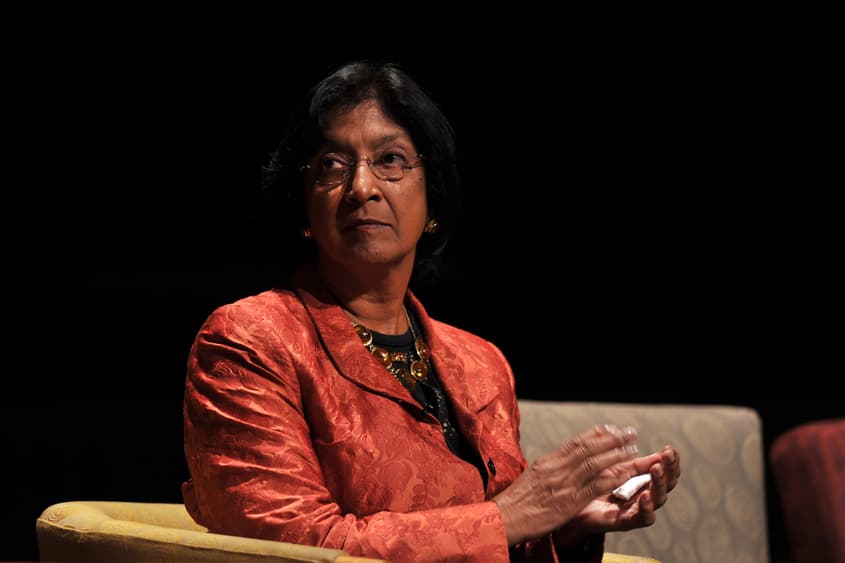Dr Navi Pillay has expressed concern about a lack of accountability for genocide in Gaza.
Wed 22 Oct 2025 14.00

Photo: AAP Image/Paul Miller
The UN’s former High Commissioner for Human Rights has said world powers are enabling genocide in Gaza by ignoring their legal duty to act, observing that “the public demands justice and accountability”.
Dr Navi Pillay is Chair of the United Nations Human Rights Council Independent International Commission of Inquiry on the Occupied Palestinian Territory and has been named the 2025 Sydney Peace Prize laureate.
“None of us works with the notion of winning an award,” she said on the Australia Institute’s After America podcast, “except perhaps the current President of the United States who thinks already that he deserves the Nobel Peace Prize.”
Israel says it has resumed the ceasefire agreement, brokered by the US, after a wave of airstrikes on Gaza but “it’s not a peace agreement,” as Dr Pillay pointed out. “That has to follow immediately.”
Dr Emma Shortis, the Australia Institute’s Director of International & Security Affairs program said President Trump’s 20-point peace plan “does look forward to a version of rebuilding Gaza but it does not cover accountability.”
Dr Pillay, a prominent international lawyer from South Africa, said all nations – not just those directly involved – are “under legal obligation to punish genocide and prevent genocide.”
“You can see other states take sides in this conflict. States are supplying weapons and other things like fuel.
“All of us are witnesses. I have not, in my long life, seen this level of defiance of international law and standards, and that a state is getting away with it because of powerful support.”
She questioned why nations are not being held responsible for “violating blatantly” the international laws they created.
“Why did they pass the genocide convention? It’s to ensure that genocide never happens. It’s not for after the fact and what do you do when thousands and thousands have been killed.
“This is why it’s not a choice. It’s mandatory that every state carries out what they agreed to in the genocide convention.”
The former judge at the International Criminal Court urged states to not just “make fancy statements” but to implement their obligations.
“This is a serious message to all of us because we support this mechanism built by states to ensure that there is no conflict that seriously harms civilians. It’s a crime and yet it’s being in front of our eyes,” she said.
“More broadly, the war on Gaza has revealed a culture of growing impunity for war crimes, and impunity that now spans conflicts across the world,” observed host Dr Shortis.
Dr Pillay, who was also a judge on the International Criminal Tribunal for Rwanda, was critical of the UN Security Council’s veto system which has reportedly enabled the states on the security council to shirk responsibility.
“The one thing that troubles all of us is how the five states, the big powers holding the veto in the security council, can stop investigations of their own acts.”
She has “hailed” Hamas’ release of all living hostages as Israel awaits the return of 16 more bodies, while emphasising that international rule must be followed to achieve long-term peace.
“We named the taking of hostages by Hamas as a war crime. It’s definitely not allowed under international law, and we called the crimes they were committing […] war crimes and crimes against humanity.
“You have to work under the rule of law and that means investigation, prosecution and trial and sentencing by a court,” said Dr Pillay.
“It doesn’t mean you go and assassinate the whole population. It does not mean that you identify the whole population as Hamas. In this particular case, Israel did not distinguish between combatants and civilians.”
In July last year, it handed down a landmark report that declared Israel’s occupation of Palestinian territories was unlawful, urging an immediate end to the occupation so the UN could deliver humanitarian aid.
Moving forward, the renowned international jurist said any peace discussions need to include the Palestinian people.
“They are well able to govern themselves and you can’t have a solution imposed on them. It’s been done like that in the past, never implemented and always to their disadvantage.”
